Koreeda Hirokazu’s “Monster” and the Search for the Truth
Monster, the latest film by celebrated director Koreeda Hirokazu, took two prizes at the Cannes Film Festival and is now on general release in Japan. It is set in the small city of Suwa, Nagano Prefecture, in the aftermath of an apparent incident of arson. Who or what is the “monster” that lurks behind the quotidian ordinariness of life in this small city?
Collaboration with a Master Scriptwriter
At this year’s Cannes festival, which ran till May 27, Kaibutsu (Monster) was shown in competition, and won the “Queer Palm” award, an independent prize that has been awarded since 2010 to the best film dealing with LGBTQ issues. Films in all categories are eligible. This year, the five judges were apparently unanimous in selecting Monster for the prize. For many members of the audience, however, it may not be obvious that this is one of the subjects of the film.
The director himself said at a press conference after the film was screened at the festival (but before it received the award) that “I don’t think of the film as addressing that subject particularly,” apparently preferring audiences to see the film without preconceptions.
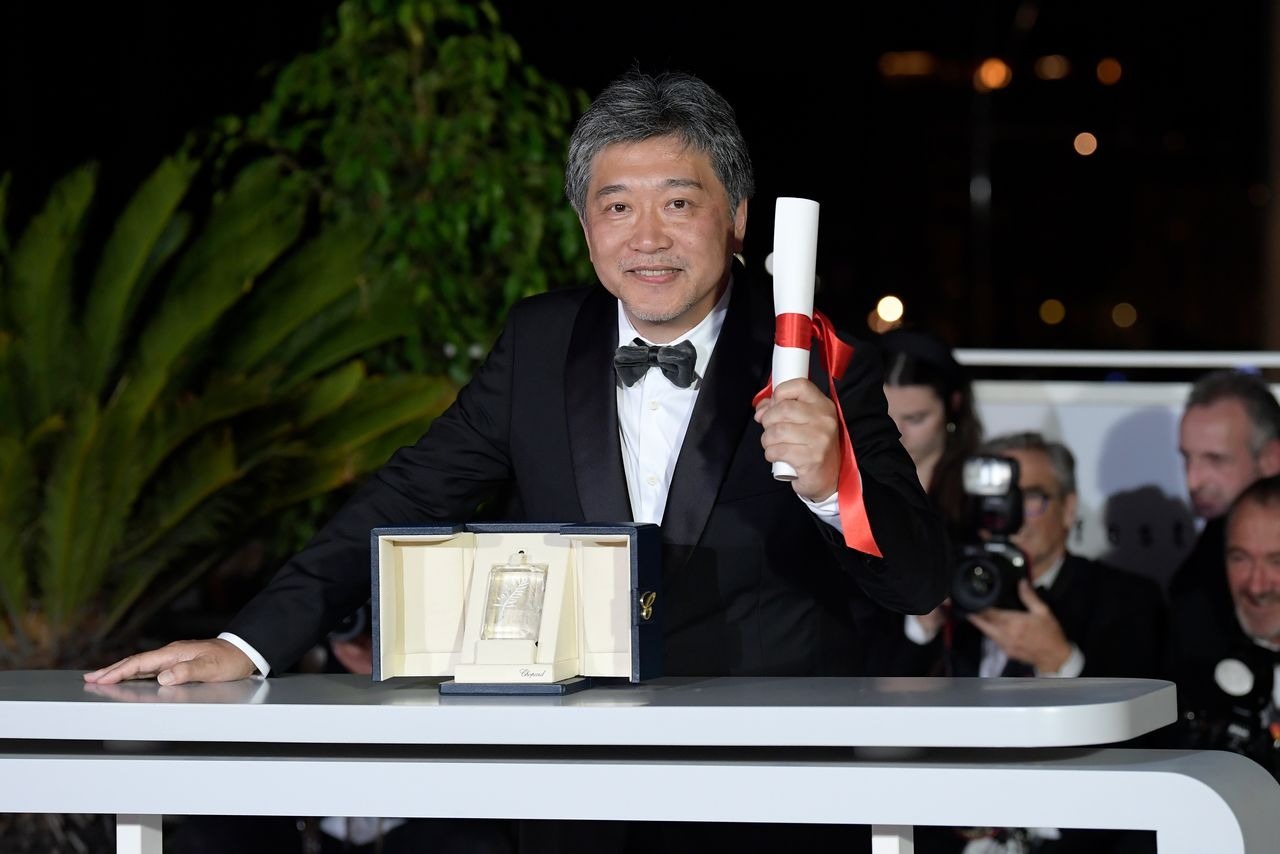
Monster won the Prize for Best Screenplay at the Cannes Film Festival. Director Koreeda Hirokazu accepted the prize on behalf of screenwriter Sakamoto Yūji, who had already returned to Japan. (© 2023 Kaibutsu Production Committee)
The film’s second award went to Sakamoto Yūji’s screenplay. As has been widely noted, Monster marks the first time Koreeda has filmed another writer’s script since 1995, when he made his debut with Maborosi, based on a novel by Miyamoto Teru. This time, Sakamoto’s story idea came first, and Koreeda was approached to direct.
The project was pitched to Koreeda back in December 2018, seven months after Shoplifters won the Palme d’Or at Cannes. Koreeda had used the intervening months to undertake a major new challenge, directing his next film in France, with a mostly French cast and crew. The results were released in 2019 as The Truth.
Koreeda was immediately taken with Sakamoto’s script. He seems to have sensed new potential in the story at a time when he was starting to sense the limits of his own scripts. “There are a lot of characters that I can’t write,” he apparently said after reading the idea. Although Monster marked a return to Japan for Koreeda after two films overseas (The Truth in France and Broker in Korea in 2022), the director’s latest work remains marked by the same determination to take on a new challenge with every film he makes.
The Hunt for Invisible “Monsters”
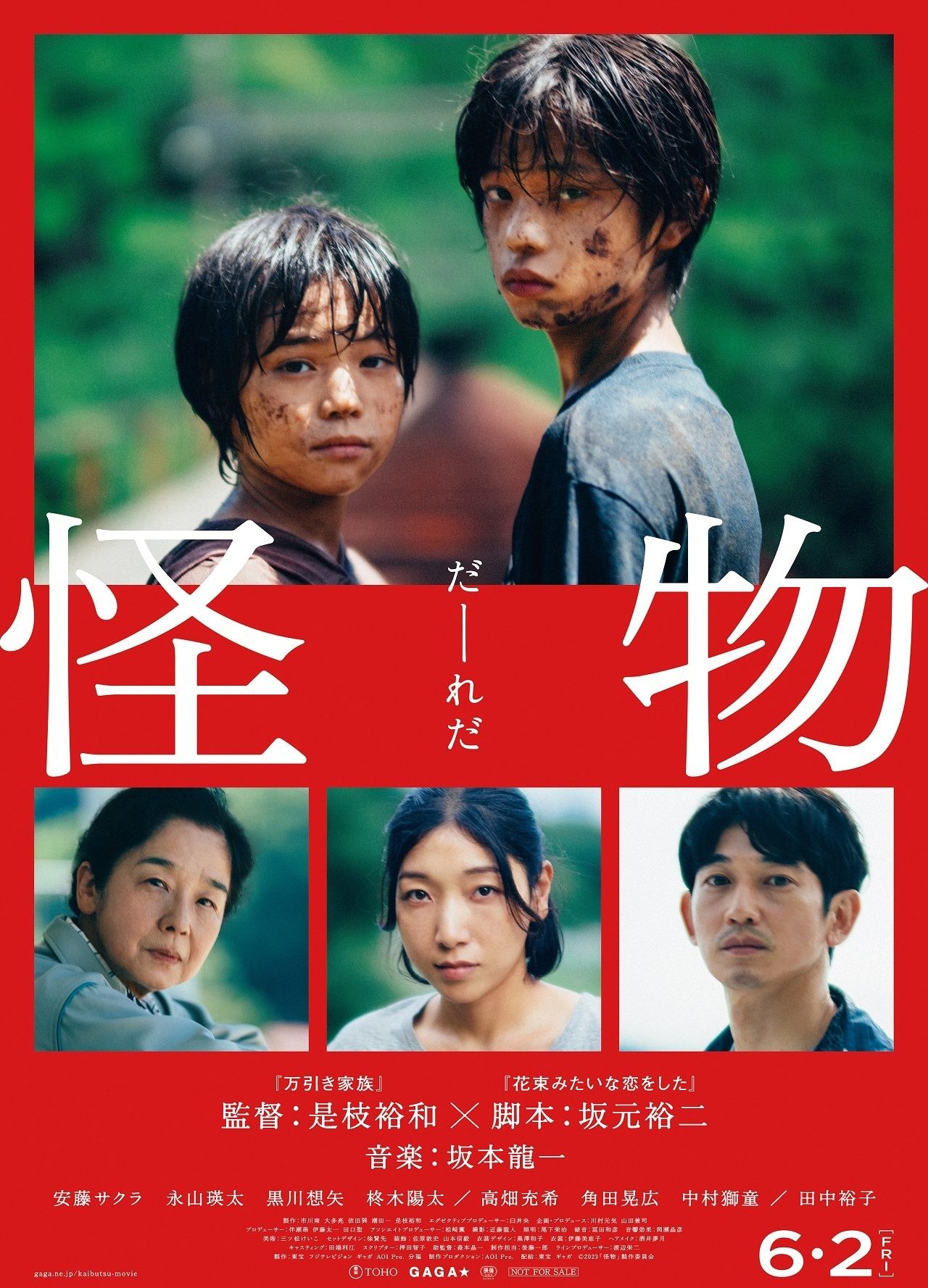
(© 2023 Kaibutsu Production Committee)
Shooting another writer’s screenplay also brought about a change to Koreeda’s style of directing and the way he got performances out of his actors. He has been famous in the past for communicating lines verbally to child actors, but for this film he adopted the more conventional approach of giving scripts in advance. Even so, he still made frequent last-minute changes to the script on set.
This was presumably a decision that was taken out of consideration for the characteristics of the script, which creates drama and tension through the loop-like structure and shifting perspective of the narrative. But one thing has run through Koreeda’s work since the days when he was making documentary films. Throughout his career, he has been fascinated and obsessed by the question: What is the truth? This dogged pursuit has always been built on a perspective that understands that there is never just one version of the truth. Monster may be more profoundly marked by this worldview than any of the director’s previous films.
The story revolves around a single mother and her only child. Saori (Andō Sakura) has lost her husband and now lives with her 11-year-old son, Minato (Kurokawa Sōya). Since the night of a huge conflagration that gutted large parts of a nearby high-rise building, Minato has been behaving strangely. Concerned, Saori visits Minato’s school to investigate what her son has reluctantly revealed about verbal abuse and physical intimidation at the hands of the class teacher. But the principal and the other teachers brush off her concerns with noncommittal answers and formulaic apologies. When they refuse to take the matter seriously, Saori loses her temper and becomes disillusioned by what she sees as the school’s complicity in the teacher’s inappropriate behavior.
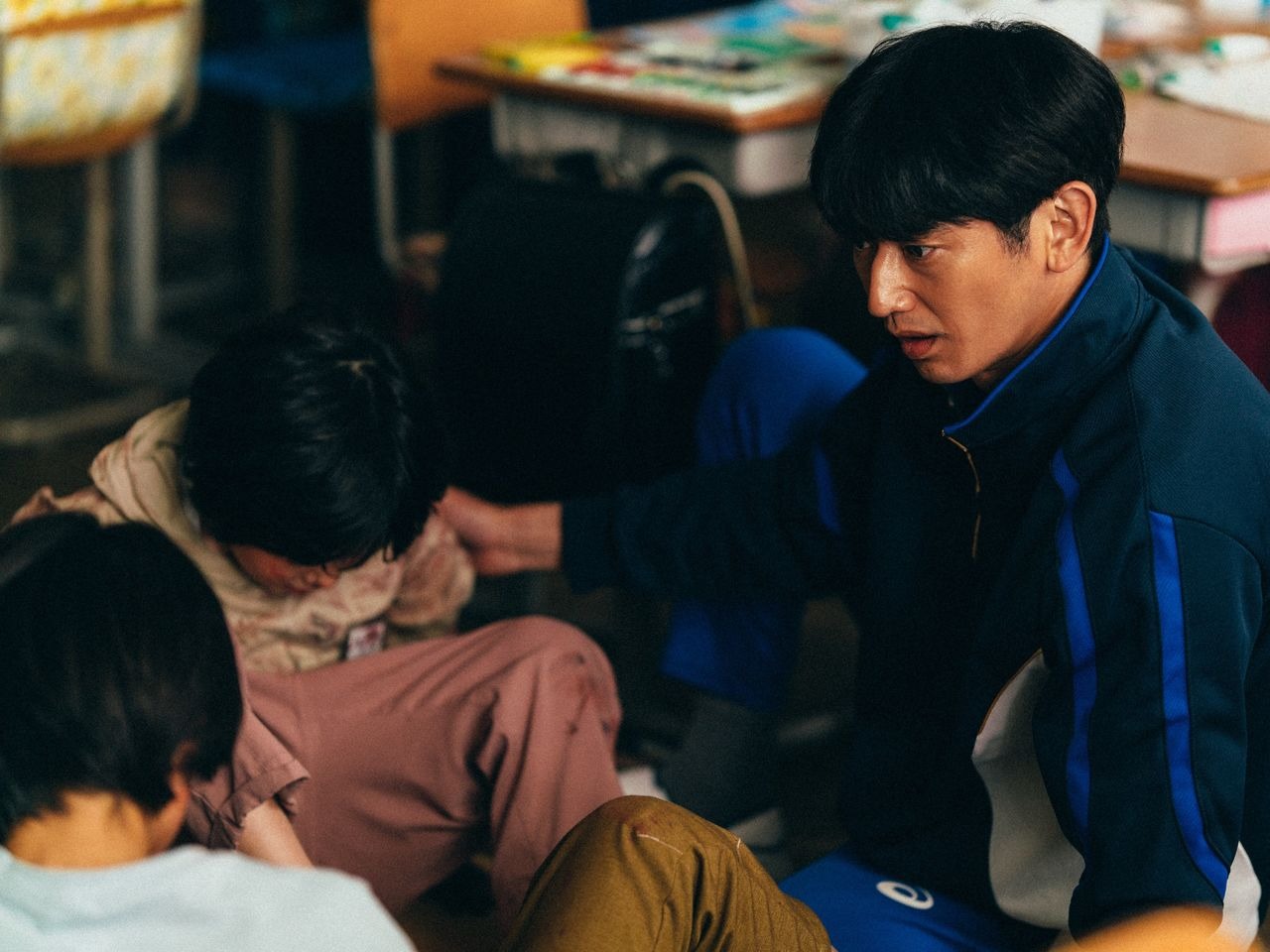
Rumors swirl around Mr. Hori (Nagayama Eita), the teacher in charge of Minato’s class at school (© 2023 Kaibutsu Production Committee)
The mysterious identity of the “monster” in the title is a large part of the film’s impact on audiences, who pick up on the hints of restless uneasiness and suspicious behavior as the story develops. Tipped off by the title, we start to look for the “monster” we assume must be lurking somewhere in the storyline. We start to hunt for hints in the words and body language of the characters. But our attempts to pin down any individual as the “baddie” are limited by our narrow and simplistic perspective. Misled repeatedly by the sleight of hand of the screenwriter and director, we lose sight of the facts and find ourselves groping for the truth.
The film’s teasing narrative structure raises probing questions about our lives in contemporary society, and the increasing difficulty of discerning the truth in the face of a ceaseless flood of information. We respond with disconcerting speed to a rush of events that take place around the world, and consume a constantly churning diet of information. Putting our own interpretive spin on rumors supported only by sketchy evidence, and often failing to see beyond the surface of people and events, we lack the ability or the time to consider the facts properly and penetrate to the truth. Koreeda’s film exposes the danger of creating monsters through our slapdash, self-centered, and superficial understanding of the world, and reminds us that this tendency exists within us all.
A Peerless Collaboration
And some things only come into view when we give up our hunt for the monster. Monster differs from conventional thrillers, which keep audiences on tenterhooks until revealing the shocking true identity of the villain at the end, in its ability to show us the world as it might look once we have seen the truth, and in the dynamism with which it carries this insight to a climax.
Sakamoto and Koreeda do not take audiences into the dark recesses of the human heart, or lure them into a dark labyrinth of twisted relationships. Instead, they guide us deftly to a vantage point that affords a clear and transcendent view of the kind of world that might lie beyond the perception of truth. Their aim is to show us a pure world full of the innocent joy of childhood, unsullied by the adult world, and to open our eyes to a brightness that extends beyond the shadows. It is here, in this vision of a world of innocence and purity, that Koreeda’s visual world exerts its greatest power, the talents of a master filmmaker lifting Sakamoto Yūji’s script into the realm of the sublime.
The evocative music by Sakamoto Ryūichi makes the light that illuminates these final scenes shine even more brightly. When Koreeda asked him to compose the music, Sakamoto no longer had the physical strength to write a complete score, but agreed to write two new pieces. The rest of the music consists of two tracks from his final album 12, released at the beginning of this year, and other earlier works. Before he died, the composer wrote the following remarks about the theme music, written specially for the film: “Our salvation lies with the natural joy that children feel in being alive. It was this that led my hands as they moved across the piano.”
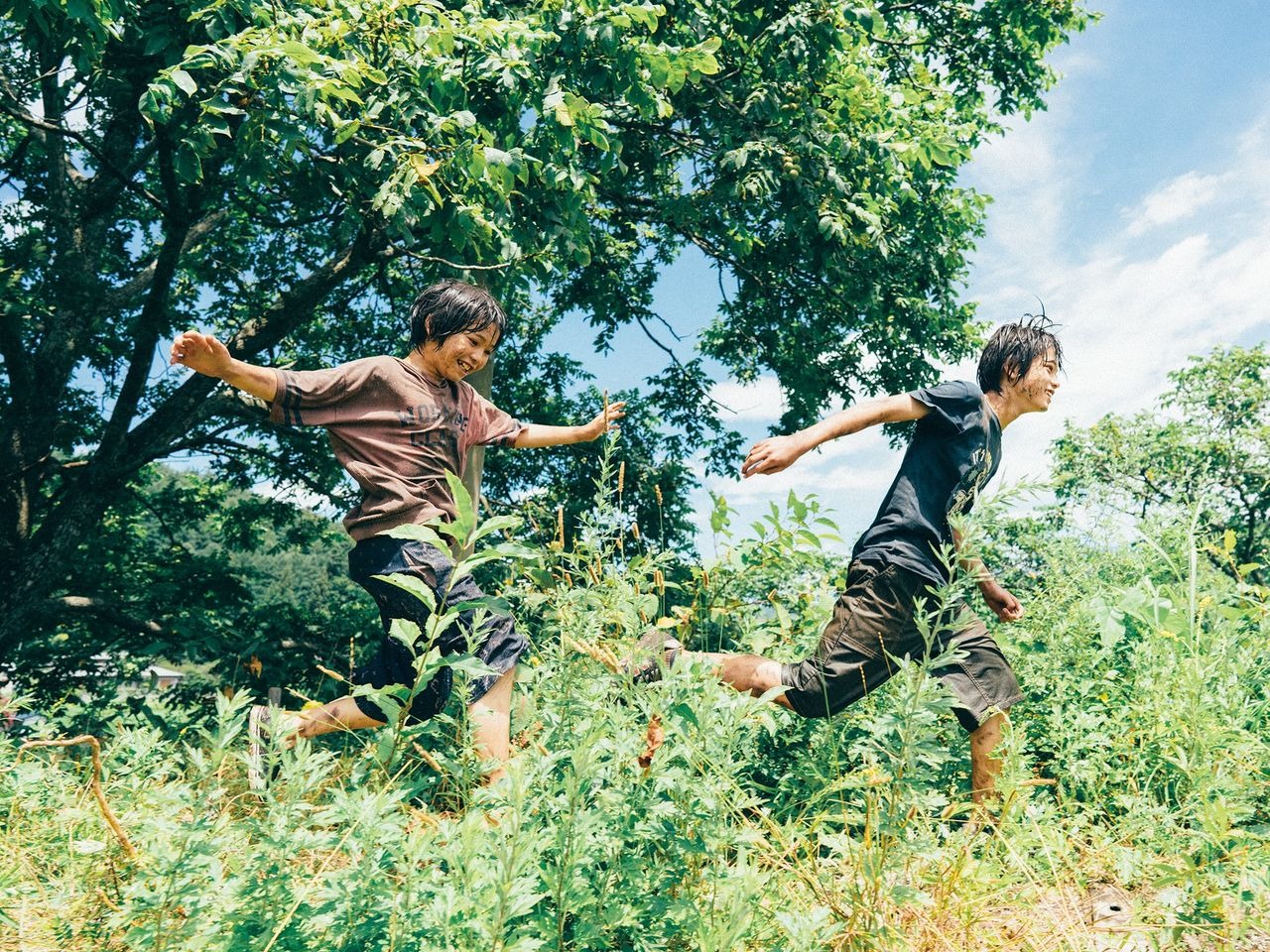
Minato (right, Kurokawa Sōya) and his classmate Yori (Hiiragi Hinata). (© 2023 Kaibutsu Production Committee)
Source: Nippon

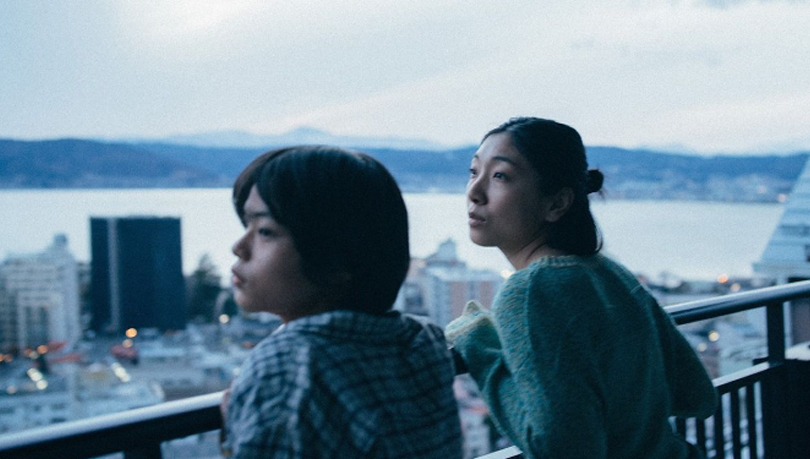

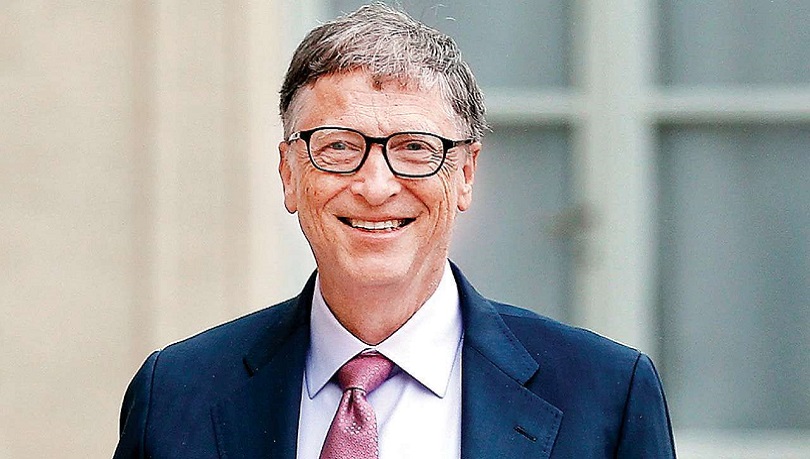

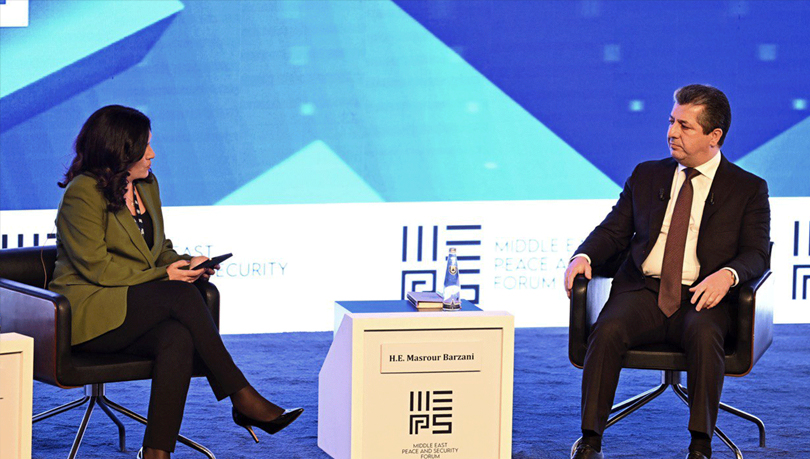
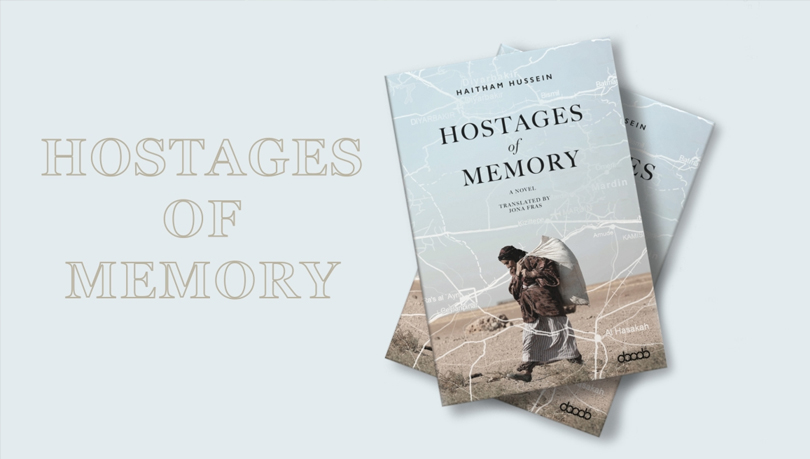
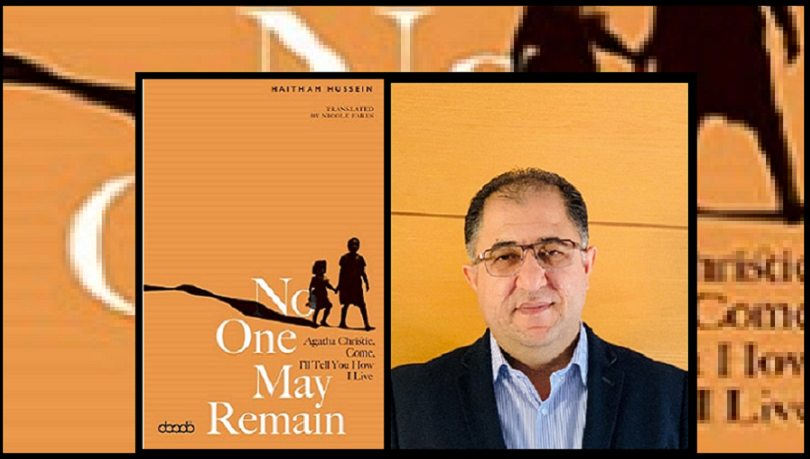
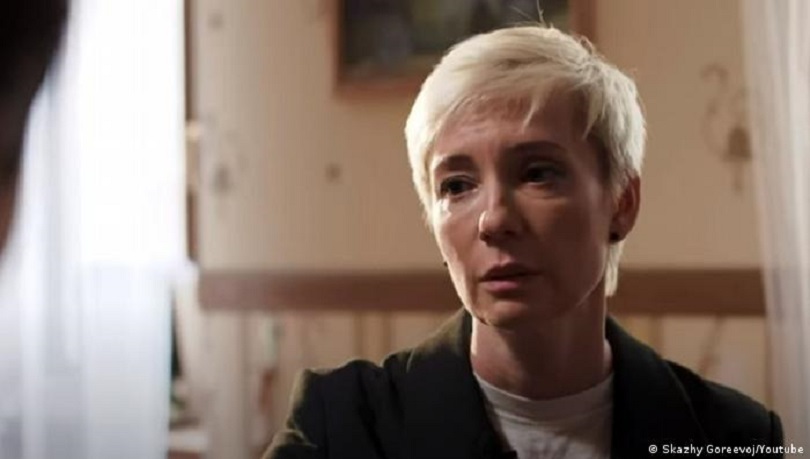
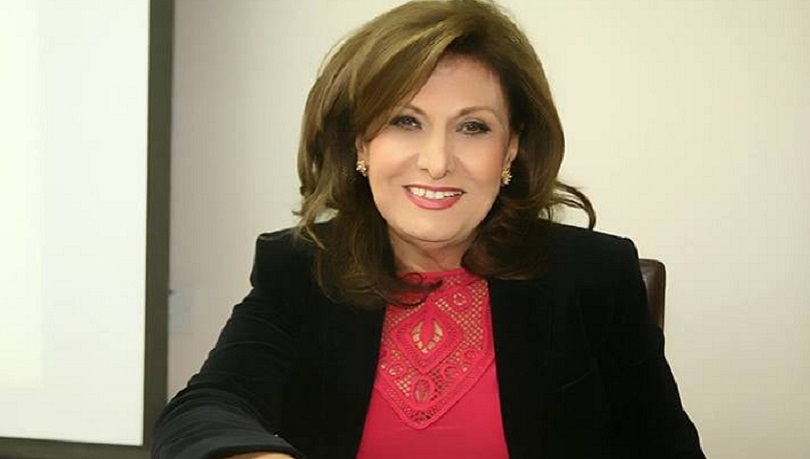

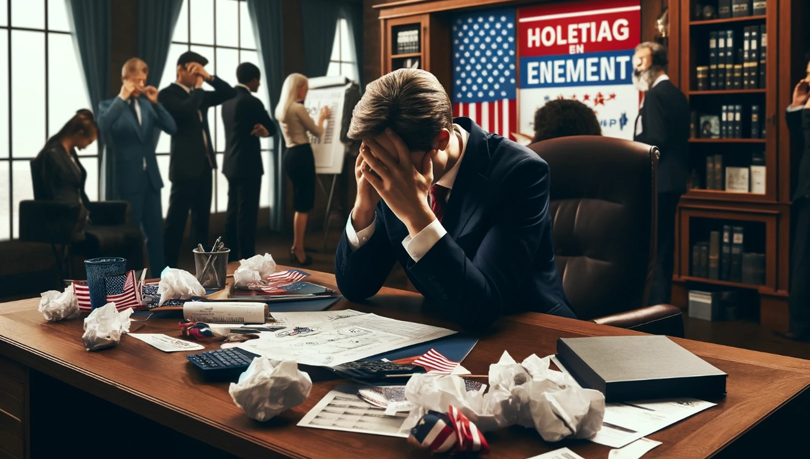


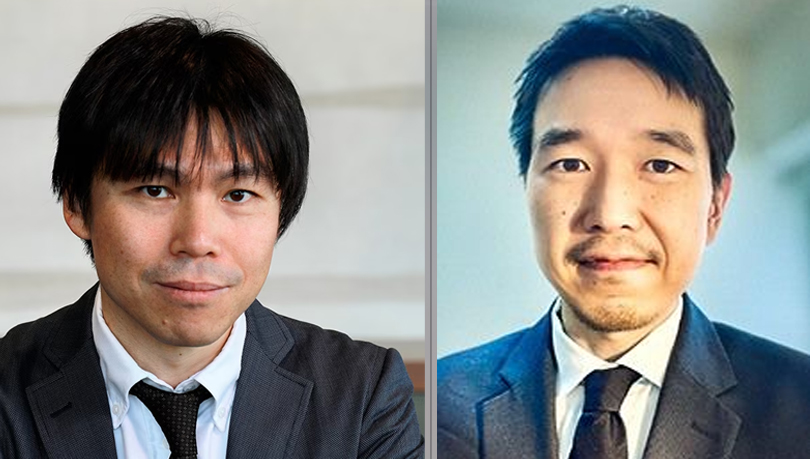

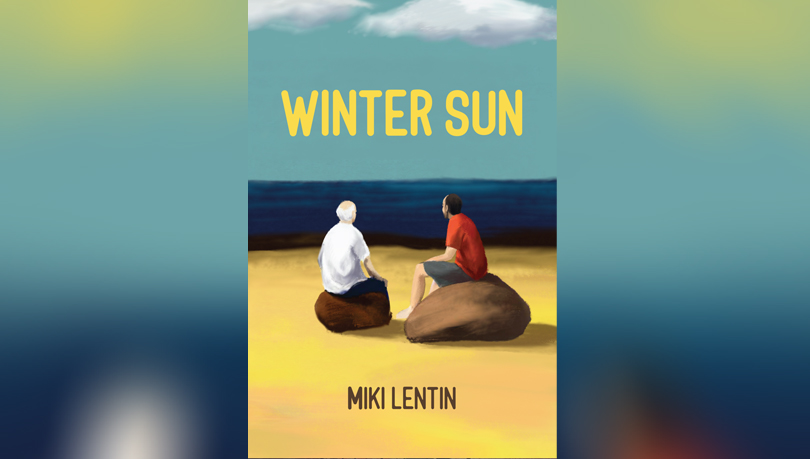
0 Comments